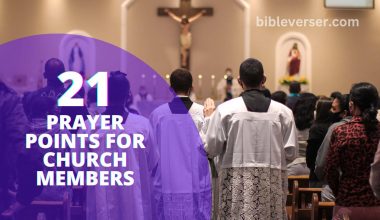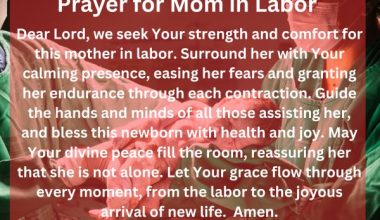15 Shocking Things to Avoid When Fasting and Praying You Never Knew
Absolutely! Fasting and praying are powerful practices, but like anything, there are certain things that can block or hinder the spiritual experience. Let’s take time to really understand each one and why it matters.
1. Overworking Yourself
When you fast, your body and mind are naturally going to slow down. You’re not taking in the normal amount of fuel (food), so trying to push through with your usual workload can be a mistake. If you’re juggling heavy work, errands, or chores during a fast, you may find yourself exhausted. This can make it harder to concentrate on prayer and feel connected spiritually. Fasting is meant to create space for quiet reflection, so don’t overburden yourself with too much activity. Allow yourself to rest.
2. Neglecting Hydration
A lot of people think fasting only means avoiding food, but hydration is just as important unless you’re doing a dry fast (which involves no food or water). If you’re allowed water, make sure you drink enough! When you’re dehydrated, your body struggles. You might feel dizzy, lightheaded, or get headaches, and that can make it incredibly difficult to focus on prayer or spiritual practices. Hydration helps keep your mind clear and your body functioning well, which allows you to connect more deeply to the spiritual side of fasting.
3. Holding onto Negative Thoughts
Fasting isn’t just about the physical aspect, it’s also about your mindset. If you’re harboring negative thoughts like anger, bitterness, or resentment it can block your spiritual progress.
Think of fasting as a time to cleanse your mind, just as much as your body. Holding onto negativity can make your prayers feel empty or heavy. It’s shocking how much our emotional baggage can prevent us from receiving spiritual insight or peace. Use this time to practice forgiveness and let go of those things weighing you down emotionally.
4. Eating Heavily Before Breaking the Fast
After fasting all day or for a prolonged period, the natural instinct is to indulge in a big meal. But doing that can shock your system. Your stomach has been empty for hours, so hitting it with a huge, greasy, or heavy meal could lead to indigestion or stomach pain. You want to break your fast gently with something light and nutritious—like fruits, soup, or a small portion of healthy food—so your body can ease back into digesting properly. Overeating right away can also make you feel sluggish, counteracting the clarity you may have gained from fasting.
5. Fasting Without a Clear Intention
One of the biggest mistakes people make is fasting without a clear purpose. It’s easy to go through the motions without understanding why you’re fasting. Are you seeking guidance, healing, or spiritual growth? Fasting is much more effective when it’s paired with a clear intention. Without one, it can feel like you’re depriving yourself for no reason. Before you begin, decide what you’re hoping to gain or learn during the fast. This gives your fast a focus, so it becomes a purposeful spiritual journey rather than just a physical challenge.
6. Skipping Personal Reflection
Praying is important, but so is personal reflection. Fasting gives you an opportunity to quiet the noise of daily life and turn inward. Taking time to reflect on your thoughts, behaviors, and goals can be incredibly rewarding. Some people just pray on autopilot without taking time to pause and listen for answers or guidance. During fasting, it’s important to reflect on where you are in life, what changes you want to make, and how your spiritual path is evolving. Journaling during this time can also help you gain deeper insights.
7. Neglecting Proper Sleep
Sleep is vital, especially when you’re fasting. Your body is already dealing with less energy from food, so neglecting rest can leave you feeling completely wiped out. Fasting and praying are supposed to help you feel more connected and grounded, but without enough sleep, you may end up feeling irritable or disconnected instead. Proper rest allows you to stay focused during prayer and maintain mental clarity, which is crucial during a fast.
8. Ignoring Your Body’s Warning Signs
Sometimes, people push themselves too hard during a fast, thinking that enduring pain or extreme weakness is part of the spiritual process. While some discomfort is normal, you need to be mindful of real health warnings. If you’re feeling faint, nauseous, or overly weak, it’s your body’s way of telling you something is wrong. Remember, fasting isn’t meant to harm you. It’s important to recognize when you need to adjust or even stop the fast to take care of your health. Your well-being should always come first.
9. Distractions During Prayer
One of the most common and shocking things people overlook is how easily they get distracted during prayer. Phones, TV, social media—they can all pull you away from the moment. When you’re fasting and praying, you want to be fully present. If you’re constantly checking your phone or letting your mind wander, you’re missing the point of the spiritual practice. Create a peaceful, quiet space for prayer, free from distractions. This allows you to focus your mind and heart on your spiritual goals.
10. Engaging in Gossip or Idle Talk
Fasting is not just about what you eat or drink, it’s also about what comes out of your mouth. Engaging in gossip or idle, meaningless conversations can shift your focus from spiritual matters to negative or trivial ones. It’s easy to get caught up in these kinds of talks without realizing how much they affect your state of mind. If you spend your fasting period talking negatively about others or filling your day with pointless chatter, you’re likely missing out on the deeper, transformative aspects of fasting. Instead, use this time to speak with kindness and intention.
11. Neglecting Acts of Service
Many people forget that fasting is also about extending kindness and service to others. It’s a time when you should not only focus on your personal spiritual journey but also think about how you can be of service to those around you. Fasting and prayer are more meaningful when paired with acts of compassion, whether it’s volunteering, helping someone in need, or just offering a kind word. Neglecting service can make your fast feel self-centered rather than spiritually balanced.
12. Staying Isolated
Some people assume fasting means they need to withdraw from others, but that’s not always the case. Isolation can lead to loneliness, which can make the fasting experience more difficult than it needs to be. While you may want some time for personal reflection, it’s important to also stay connected with your community, friends, or family. Being around supportive people can help uplift and encourage you during your fast.
13. Fasting for Appearance’s Sake
Fasting should be a humble, private act of devotion—not something done for praise or to appear more spiritual to others. If you’re fasting for show, you’re missing the spiritual essence of the practice. Whether it’s to seem more holy or gain approval from others, this motivation undermines the true purpose of fasting. The practice should be between you and your faith, not something you use to impress others.
14. Neglecting Scripture or Spiritual Reading
During a fast, it’s easy to focus only on the abstaining part and forget to feed your spirit. Fasting without spending time in scripture or spiritual reading can leave you feeling disconnected. Spiritual texts give you wisdom, encouragement, and insight that help deepen your experience. Make sure you dedicate some of your fasting time to reading, meditating, and reflecting on scriptures or spiritual writings that align with your prayer goals.
15. Giving Up Too Soon
Fasting can be tough, and sometimes it’s tempting to give up when the hunger or discomfort kicks in. However, spiritual breakthroughs often happen after a period of perseverance. Unless your health is genuinely at risk, try not to quit too early. Trust that the process is working even if you don’t see the results immediately. Sometimes the greatest spiritual growth happens when you push past the difficult moments.
Prayer for God’s Help During Fasting and Prayer
Heavenly Father,
I come before You today with a heart open to Your guidance and grace. As I enter this time of fasting and prayer, I ask for Your strength to help me through each moment. I know that without You, this journey would be impossible, but with You, all things are possible.
Lord, give me the discipline to stay committed when my body feels weak. Help me to focus not on the hunger, but on the nourishment of Your Spirit. Let my prayers rise to You with clarity and sincerity, and may I hear Your voice in the stillness.
Father, cleanse me from distractions that pull me away from You. Remove anything that may cloud my heart and mind so that I may fully experience Your presence. When I feel weary, remind me that You are my refuge. When I feel alone, remind me that You are always near.
I ask for Your wisdom during this fast. Please open my eyes to see the areas in my life that need change, and give me the courage to make those changes. Teach me patience as I wait for Your answers, and grant me peace, knowing that You are in control.
Lord, I lift up my struggles, my hopes, and my fears to You. Help me surrender them fully, trusting that You will provide. Let this fast not only transform my spirit but also deepen my relationship with You.
Thank You for the strength and grace You give each day. I ask for Your presence to be with me as I continue this journey, and I give You all the glory for whatever You are working out in my life through this time of fasting and prayer. In Jesus’ name, I pray. Amen.
Each of these points is a reminder that fasting and praying are not just about the physical act of giving up food but also about nurturing your mind, spirit, and relationships with others. Avoiding these pitfalls will help make your fasting experience more meaningful, deepening your connection with the divine and fostering personal growth.







